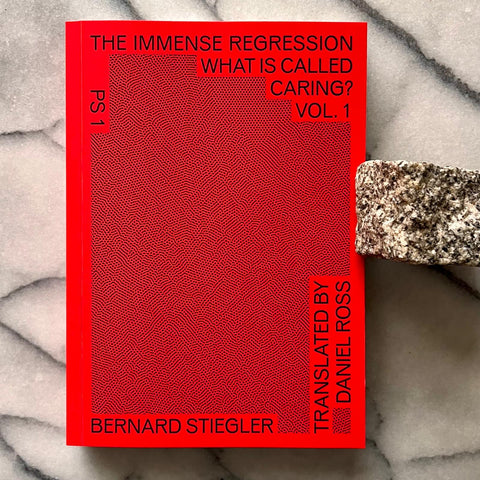The Immense Regression
The Immense Regression – Discussion with Daniel Ross

Discussion with Daniel Ross about The Immense Regression. What is called caring (vol. 1)
Where : La Générale, 39 rue Gassendi, 75014 Paris.
When : October 27th 2025 at 6:30 pm
Abstract
“For Bernard Stiegler, philosophy starts with the question of technics, then for most of its history forgets this question, and ultimately rediscovers that it was never anything other than this question. But this question of technics is first of all, and above all, the question of technics as a form of memory, opening the possibility of knowledge but also tending to eliminate it. With the vast increases in speed that come with computer network technologies, this tendency moves increasingly towards the elimination of the knowledge-as-non-knowledge that characterizes us as beings who anticipate our mortality. Which is to say, the elimination of time itself. So-called artificial intelligence raises these issues in a new way, beyond what Stiegler was able to experience during his lifetime, but in a way anticipated by him, both analytically – as tendencies towards denoetization, cinematization, and uncertainty – and existentially – as what he calls an immense regression.”
Bio
Daniel Ross has translated numerous books by Bernard Stiegler, including most recently Nanjing Lectures 2016-2019 (Open Humanities Press) and The Age of Disruption: Technology and Madness in Computational Capitalism (Polity Press). With David Barison, he is the co-director of the award-winning documentary about Martin Heidegger, The Ister, which premiered at the Rotterdam Film Festival and was the recipient of the Prix du Groupement National des Cinémas de Recherche (GNCR) and the Prix de l’AQCC at the Festival du Nouveau Cinéma, Montreal (2004). He is the author of Political Anaphylaxis (OHP, 2021), Violent Democracy (Cambridge University Press, 2004) and numerous articles and chapters on the work of Bernard Stiegler.
